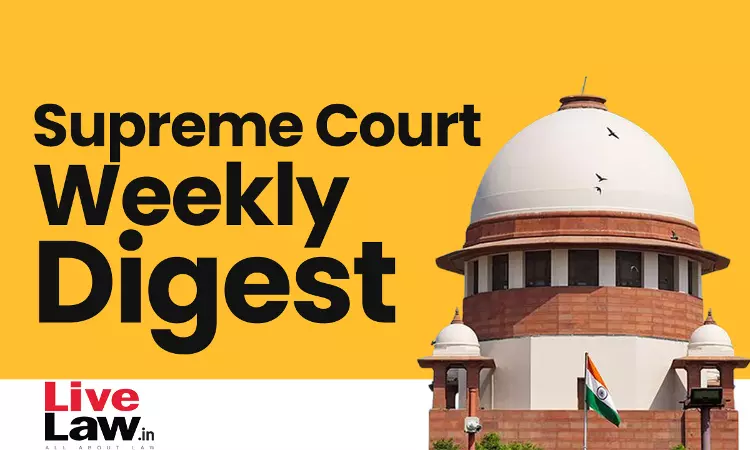- Home
- /
- Top Stories
- /
- Supreme Court Weekly Roundup:...
Supreme Court Weekly Roundup: 4-10th September, 2023
Suraj Parmar
12 Sept 2023 8:16 PM IST
Judgments/OrdersPreventive Detention Laws Are Exceptional Measures, Not To Be Invoked When Ordinary Criminal Law Provides Remedies: Supreme CourtCase Title: Ameena Begum v. The State of Telangana & Ors.Citation: 2023 LiveLaw (SC) 743The Supreme Court has stated that preventive detention laws are an 'exceptional measure reserved for tackling emergent situations' and must not be used as a...
Next Story



